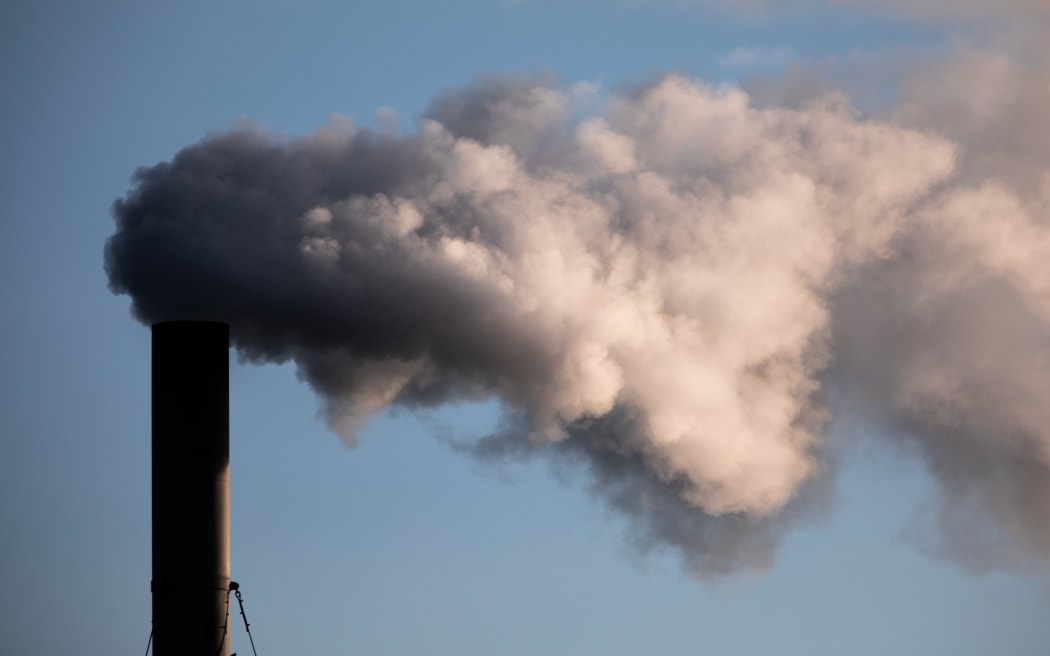The latest figures on the dangers of air pollution in this country make for shocking reading, but not shocking enough it seems to keep the issue on the front pages.

A 2023 report found that particulate matter from heavy industry was causing at least 13 additional premature deaths in Mount Maunganui each year. Photo: RNZ / Cole Eastham-Farrelly
"There's nothing more essential for life than air.
"And yet, because of air pollution, the simple act of breathing contributes to more than seven million deaths a year."
That's a direct quote from the World Health Organisation's director-general Dr Tedros Adhanom Ghebreyesus, updating us on the latest global report on how dangerous that pollution is.
It's not good news.
Newsroom's Marc Daalder has investigated the figures since a big study centred on New Zealand came out in July last year.
In spite of our relatively open landscapes and "green" image, 3,300 premature deaths could be attributed to air pollution in 2016, and probably each year since then.
Four million of us are exposed to levels above those recommended as safe by the WHO.
Invercargill is our deadliest city. Beautiful beachside Mt Maunganui is shocking, too.
It has an impact on around 13,000 cases of childhood asthma and many thousands of hospitalisations for heart and lung issues, and it's also been linked to dementia.
The figures stretch well beyond those for the road toll; far greater than suicide statistics.
"Any amount of air pollution can have serious consequences for human health," Daalder tells Sharon Brettkelly on The Detail today.
"It's not something that we see. Unlike Delhi or Beijing, we don't have smog in New Zealand to the same extent. But we're still burning fossil fuels in our cars, we're heating our homes with wood and sometimes coal, and we do have a little bit of heavy industry. All of that together does create particulate matter [and] nitrogen dioxide ... which gets into our lungs and bloodstreams and has these sinister long-term, but hard-to-spot, impacts."
Particulate matter is basically small bits of anything. New research suggests as little as 2.5 microns or less in diameter is damaging. That's down from what experts previously thought of as problematic, at 10 microns.
Daalder tells The Detail how the cutting edge research was conducted in New Zealand, and what air pollution does to the body.
And although scientists have been shocked by the results, particularly the scale of the impacts, it's an issue we can't see – so it's easy to ignore.
Unlike in many places overseas, such as cities reliant on coal, our lives are likely to be shortened by a matter of months rather than years.
"But," says Daalder, "there are some people who might be vulnerable already ... who are going to be hit harder by it. It can help exacerbate issues and in some cases trigger them."
If you think there's nothing we can do about it, you're wrong.
"It's in our power to change, and we will see the benefits of that change in our neighbourhood.
"Climate change – we reduce our emissions and it's good for the globe – but it doesn't mean everything's suddenly fixed in our back yard. It's entirely in our power to stop doing this."
Check out how to listen to and follow The Detail here.
You can also stay up-to-date by liking us on Facebook or following us on Twitter.

Photo:


